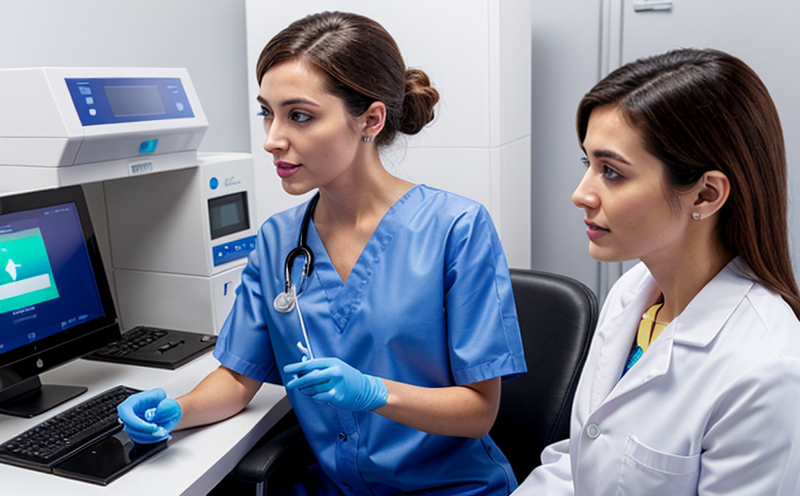PCR Testing for Algal Toxins in Marine Environments
The presence of harmful algal blooms (HABs) poses significant risks to both marine ecosystems and human health. These blooms can produce potent toxins that are not only detrimental to aquatic life but also harmful when consumed by shellfish, leading to illnesses such as paralytic shellfish poisoning (PSP), neurotoxic shellfish poisoning (NSP), and amnesic shellfish poisoning (ASP). PCR testing for algal toxins has become an essential tool in the monitoring and management of HABs.
PCR technology is particularly suited to detecting trace amounts of algal toxins, which are often present at very low concentrations. This makes it a critical method in ensuring public health safety and environmental protection. The polymerase chain reaction can amplify specific sequences of DNA from toxic algae, allowing for accurate identification and quantification of these harmful organisms. This capability is crucial for the timely detection and mitigation strategies that protect both human health and marine environments.
Our laboratory employs advanced PCR techniques to analyze samples collected from various marine environments. By using this method, we can identify species of harmful algae such as Pseudo-nitzschia, which produces domoic acid, a potent neurotoxin that affects the nervous system and has been linked to severe health issues in humans.
The process begins with sample collection, where water samples are carefully extracted from suspected HAB sites. These samples undergo rigorous quality assurance protocols before being analyzed using PCR technology. Our expertise ensures accurate detection and quantification of algal toxins, providing actionable data for stakeholders involved in environmental management and public health policy.
PCR testing is not only vital for immediate response to HAB events but also plays a crucial role in long-term monitoring programs aimed at preventing these harmful blooms from occurring. By understanding the genetic makeup of toxic algae, we can better predict their behavior under different environmental conditions, aiding in the development of more effective prevention and control measures.
Our comprehensive approach includes not only the detection of toxins but also the identification of early warning signs that could indicate an impending HAB event. This proactive stance allows for quicker intervention strategies to minimize risks associated with algal blooms. Our service is designed to meet the needs of various stakeholders, including regulatory bodies, environmental agencies, and research institutions.
| Step | Description |
|---|---|
| Sample Collection | Carefully collect water samples from suspected HAB sites. |
| DNA Extraction | Extract DNA from the collected samples using standardized protocols. |
| PCR Amplification | Amply specific sequences of DNA associated with toxic algal species. |
| Product Analysis | Analyze the PCR products to identify and quantify toxins present in the sample. |
Scope and Methodology
The scope of our PCR testing service for algal toxins includes comprehensive analysis across a range of marine environments. This encompasses coastal waters, estuaries, and open sea areas where HABs are known to occur or have been reported. Our methodology ensures that we adhere to the highest standards of accuracy and reliability.
- Sample Collection: Rigorous protocols ensure that samples are representative of the area being tested.
- DNA Extraction: Utilizing advanced techniques, we extract DNA from the collected water samples.
- PCR Amplification: Specific primers target genes unique to toxic algal species.
- Product Analysis: Using sophisticated instrumentation, we analyze PCR products to identify and quantify toxins present in the sample.
Environmental and Sustainability Contributions
The impact of harmful algal blooms on marine ecosystems is profound. By providing accurate and timely data through our PCR testing services, we contribute significantly to environmental sustainability efforts. Our work helps regulatory bodies make informed decisions that protect both human health and the integrity of marine environments.
Through early detection and monitoring, we support the implementation of strategies aimed at reducing the frequency and severity of HAB events. This not only protects public health but also contributes to the overall resilience of marine ecosystems. Our commitment to excellence in PCR testing ensures that stakeholders have reliable data to guide their actions.
In addition to direct environmental benefits, our service supports broader sustainability goals by providing insights into the ecological impacts of HABs. This information is crucial for developing sustainable practices and policies that balance human activities with environmental conservation.
Competitive Advantage and Market Impact
- Accurate and reliable data: Our PCR testing service provides precise identification and quantification of algal toxins, ensuring stakeholders have the information they need to make informed decisions.
- Proactive monitoring: By identifying early warning signs of HAB events, we enable quicker intervention strategies that minimize risks associated with these harmful blooms.
- Advanced technology: Utilizing state-of-the-art PCR techniques and instrumentation, our service is at the forefront of algal toxin detection methods.
- Comprehensive support: Our expertise extends beyond testing to include advice on mitigation strategies and policy recommendations.





